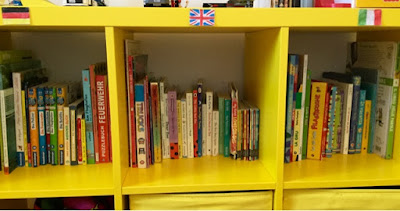November 11 is marked across many parts of the world as Armistice Day, Remembrance Day or Veterans Day to recall the end of hostilities of the 1st World War.
In Germany, the Carnival season begins at 11:11 on November 11 and people traditionally eat Berliner Pfannkuchen (similar to doughnuts but without a hole) on this day.
November 11 is also Saint Martin's Day, which is celebrated by all children in Germany as "Laternenfest", the party of the lanterns.
If you happen to be out on the streets just after dusk on Saint Martin's Day, you will most likely encounter one or more processions of children carrying lanterns and singing Saint Martin songs.
However, if you're at work or live in a neighbourhood with very few children, you will hardly notice. It was only when I moved to Berlin (and to an area full of children) that I first saw a procession of lanterns.
If you're a child growing up in Germany the party of the lanterns is one of the highlights of the year. The lanterns are prepared days or weeks in advance at nursery or school and the children practise signing the typical lantern songs with their teachers. On the actual day, children, parents and teachers gather outside nursery or school and together they walk and sing. At the end of the procession there is usually a party with food and drinks. In some cases there is also a bonfire. On these cold and dark autumnal nights, the lanterns bring much needed light and warmth.
In Germany, the Carnival season begins at 11:11 on November 11 and people traditionally eat Berliner Pfannkuchen (similar to doughnuts but without a hole) on this day.
November 11 is also Saint Martin's Day, which is celebrated by all children in Germany as "Laternenfest", the party of the lanterns.
If you happen to be out on the streets just after dusk on Saint Martin's Day, you will most likely encounter one or more processions of children carrying lanterns and singing Saint Martin songs.
However, if you're at work or live in a neighbourhood with very few children, you will hardly notice. It was only when I moved to Berlin (and to an area full of children) that I first saw a procession of lanterns.
If you're a child growing up in Germany the party of the lanterns is one of the highlights of the year. The lanterns are prepared days or weeks in advance at nursery or school and the children practise signing the typical lantern songs with their teachers. On the actual day, children, parents and teachers gather outside nursery or school and together they walk and sing. At the end of the procession there is usually a party with food and drinks. In some cases there is also a bonfire. On these cold and dark autumnal nights, the lanterns bring much needed light and warmth.



